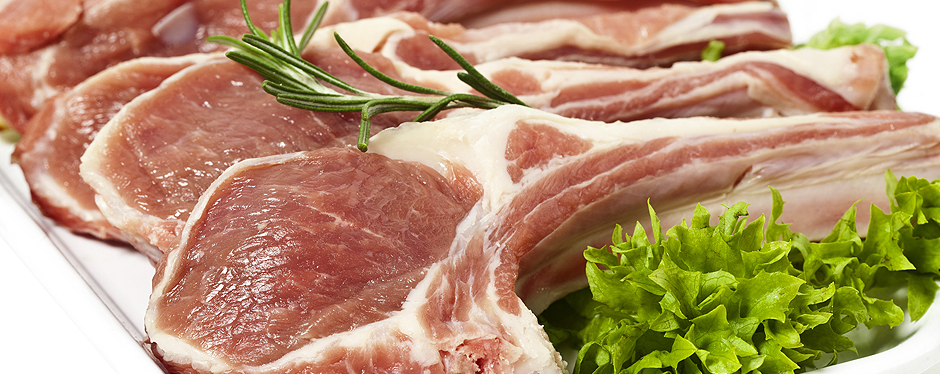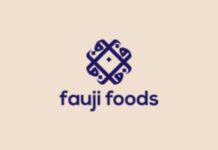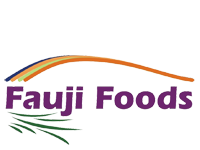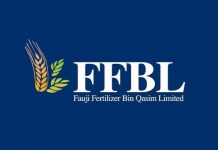The worst way to think about a profitable investment strategy – whether it be as an individual investor or as a CEO thinking about how to deploy the company’s cash – is to be focused solely on the most profitable investment opportunities. The right way to think about investment strategy is to think about the most profitable investment opportunities from amongst those that you understand. The enemy, in other words, is not your luck or your circumstances, but not knowing the limits of your own mind and capabilities.
Over the past decade, the military-owned Fauji Group – consisting largely of the Fauji Fertilizer Company (FFC) and Fauji Fertilizer Bin Qasim (FFBL) – have made forays into two completely new businesses. The first was clearly a “me-too” strategy of entering the dairy business by purchasing Noon Pakistan (makers of the Nurpur brand of dairy products) and renaming it Fauji Foods. The second was to start a greenfield investment in a new meat export business called Fauji Meat.
The market loves the former decision, largely because it thinks that foreign investors love consumer-facing businesses and will bid the stock price of Fauji Food up. It has largely ignored the latter decision, in large part because the market still does not know how to fully value the meat business. (The stock price of FFBL, which is the parent company of Fauji Meat, assumes the value of the meat business at zero rupees.)

I would argue that Fauji Meat is a much better decision by the Fauji Group than Fauji Food. Not only is it an investment in the kind of business opportunity that takes advantage of Pakistan’s natural competitive advantages, but it does so in a manner that does not require the Fauji management team to enter a business that is completely different from the one they are used to running.
(Disclosure: I worked as part of a team of consultants that advised FFBL on the financial feasibility of Fauji Meat in 2012. I am no longer affiliated with that consulting firm, ASI Partners, nor do I receive any compensation from FFBL or any related entity.)
The meat export opportunity
The business logic behind Fauji Meat is simple: Pakistan is one of oldest, most fertile areas of the world and has abundant food resources of its own, and has the good fortune of being located next to a region that is cash rich and food poor. The six Arab states of the Gulf Cooperation Council and Iran all have tremendous hydrocarbon resources that have meant that they have higher per capita incomes than Pakistan, but they do not have the capacity to grow most of their own food, making them reliant on imports.
“These countries are importing most of their meat from Brazil which is half way around the world and we can’t get our meat to them from two days shipping time away. We should kill ourselves out of embarrassment,” Kazim Namazi, a partner at ASI who worked on the Fauji Meat feasibility, used to say. He was referring to the fact that Brazil accounts for approximately 52% of the total meat imports of those countries, despite being on the other side of the planet.

The market opportunity is not insignificant: the six Gulf states and Iran imported $6.4 billion worth of meat in 2015, the latest full year for which figures are available from the World Trade Organization. More than half of that opportunity comes from Saudi Arabia alone. Pakistan’s share of that market is miniscule, though it has been growing over the last few years.
Pakistan’s exports of meat reached $264 million in 2015, up from just $13.8 million in 2003, which represents an average annual growth rate of 27.8% over a 12-year period. While that number is a relatively small proportion of Pakistan’s total exports, it nonetheless represents one of the fastest growing categories of exports the country currently has.
One of the companies that has contributed to that export business is Al Shaheer Corporation, a publicly listed company that operates both a meat export operation as well as a domestic retail chain of high-end butcher shops. (Disclosure: In 2010, I worked on the financial analysis and project management of the launch of Al Shaheer’s retail chain called Meat One.)
Fauji Meat, however, is a much larger operation with a much higher production capacity and significantly more investment than Al Shaheer. Most analysts expect Fauji Meat to become the dominant player among Pakistani meat exporters by the end of 2017, its first full year in operation.

How the meat business will transform FFBL
Investors are used to thinking about FFBL as a reliable dividend play in the fertilizer manufacturing sector of Pakistan. And while news of progress on Fauji Meat does occasionally move FFBL’s stock price, the bulk of the news that moves the stock has to do with its fertilizer business. Indeed, the market does not appear to be pricing in the value of the meat business into FFBL’s stock price at all.
FFBL CFO Syed Aamir Ahsan said that he expects Fauji Meat to reach revenues of Rs 1,600-2,000 crores (Rs 16-20 billion) within two years.
That is probably a mistake, because if all goes according to plan, Fauji Meat is expected to account for up to one-third of the consolidated revenues of FFBL by the end of its second year in operations. At a ceremony in Port Qasim to mark the launch of Fauji Meat’s commercial operations on January 15, FFBL CFO Syed Aamir Ahsan said that he expects Fauji Meat to reach revenues of Rs 1,600-2,000 crores (Rs 16-20 billion) within two years.

The new abattoir that Fauji has set up in Port Qasim has the capacity to produce 100 tons of meat a day on one shift, which can be doubled with relatively minimal capital expenditure by adding a second shift, suggesting that the new business line has scalability.
But what really makes Fauji Meat Ltd (FML) the more attractive subsidiary (despite the unfortunate acronym) for FFBL is the fact that it is still a commoditized business-to-business enterprise, unlike Fauji Food, which will require Fauji management to learn how to manage a business that requires building a distinct brand identity and managing the unique dynamics of a direct relationship with consumers.

In other words, Fauji Meat will allow FFBL to grow its revenues into a business that has fundamental attributes similar to the one it has been in for decades. Fauji Food will require its management and board to learn an entirely new type of business essentially from scratch. Which do you think has the higher probability of success?
Of course, managing a business where the raw material is live animals is very different from running one where the raw material is just natural gas. But the fundamental management skills required – a strict eye for standards, adherence to process, and an uncompromising attitude towards quality assurance – are likely common between the two. The food business would require the additional skills of knowing – and caring – about how consumers perceive your brand, something one suspects is not a task the manufacturers of fertilizers generally have to deal with.
Both new subsidiaries may well end up being successful. The one thing that can be said for sure is that the market would do well to recognize the potential gains from both relatively soon.








Is this news? or is it an Advertisement by Fauji Meat?
I do hope Pakistan Today gets paid for it, and it is not another free giveaway to the Fauj.
What else and a nice cheque
I am curious as to how FML plans on sustaining the 100 ton / day target. Are they going to purchase cattle from a largely unregulated cattle market, or will they also be delving in to rearing their own cattle to provide a better quality control. Also ha’s FML locked in buyers for their products already or will they have to proventer themselves initially?
Fnally is their focus going to be more the domestic or the export market
Yea yea we understand you have shares of FFBL. Good luck with that
Comments are closed.